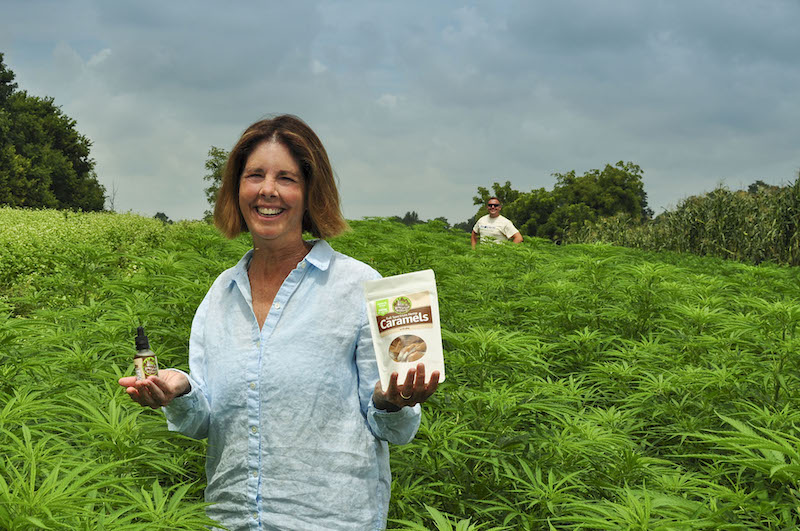While many parts of the economy are struggling during the pandemic, many organic farms have been adapting and thriving during this challenging time. In fact, virtually all sectors of the organic industry—from seed companies and feed suppliers to grain traders and food manufacturers—have seen increased sales. Consumers are aiming to become more food self-reliant by growing gardens and raising chickens in their backyards. They are buying local foods from community supported agriculture programs, which have never been more in demand. They are seeking out healthier food options to build immunity to fight disease and viruses like COVID-19.
This increased demand for organic food is creating new opportunities for organic farmers in the U.S., and these farmers are adapting and seizing the opportunities.
Here are a few examples:
- David Bishop, PrairiErth Farm, Atlanta, Illinois, who owns a 480-acre diversified farm, says 2020 has been “interesting times but good times as far as our business.” PrairiErth has doubled its CSA from 150 to 300 with 100 more on a waiting list. PrairiErth grows feed grains like corn but the farm’s diversity makes it less reliant on the commodity grain market. Bishop says succeeding during challenging times requires his farm to “grow a lot of things and sell them in a lot of places.”
- Dave Chapman, Long Wind Farm, East Thetford, Vermont, grows tomatoes in a soil-based organic greenhouse and sells them to supermarkets. He says his farm is well-suited to meet the demand of the COVID-19 marketplace, saying “we just can’t fill the (increasing) orders.” Long Wind Farm sells to the wholesale market as a small regional producer. “We’re big enough that the stores like dealing with us,” Chapman says.
- Laura Freeman, Mt. Folly Farm, Winchester, Kentucky, sells organic grains, hemp, pastured beef, chicken, and pork with “a local, shortened supply chain.” Freeman says her farm’s biggest challenge was shutting down her farm-to-table restaurant due to COVID-19. But she adapted by turning the restaurant into a “farm grocery store,” selling beef and early spring crops. Freeman says going local has helped her “pivot” to adapt to COVID-19 challenges, “creating a food system we can watch and manage safely.”
- Mark McAfee, Organic Pastures Dairy, Fresno, California, raises 714 cows on pasture on his 400-acre farm and produces a line of raw dairy products, including milk, cheese, butter, cream, and kefir, which they sell to 1300 grocery stores throughout the U.S. McAfee says his dairy has “never had better sales or more enthusiasm” as during the pandemic. He attributes this to consumers wanting to build immunity by buying probiotic-rich raw milk products. Organic Pastures does its own processing and bottling so they avoid being subject to the problems of conventional processing facility closings. McAfee says having a close connection to his customers is key to surviving COVID-19. “When you truly listen to consumers and adapt to respond to them, you’re winning,” he says.
Source: Organic Farmers Association
To view source article, visit: https://organicfarmersassociation.org/news/organic-farms-adapting-for-covid-19/





